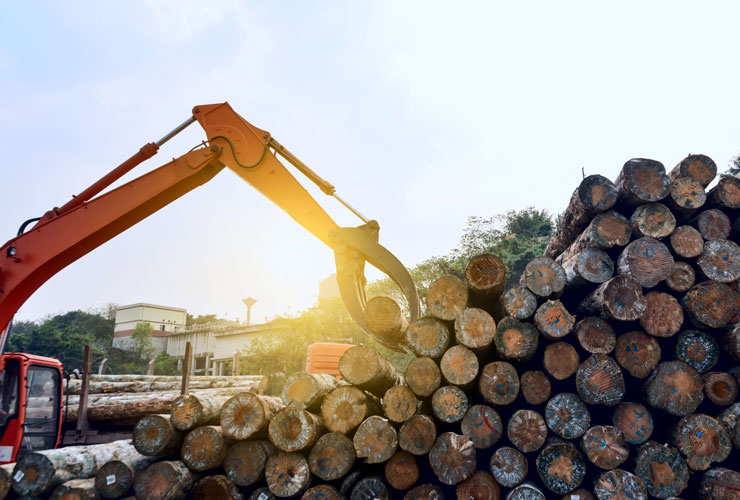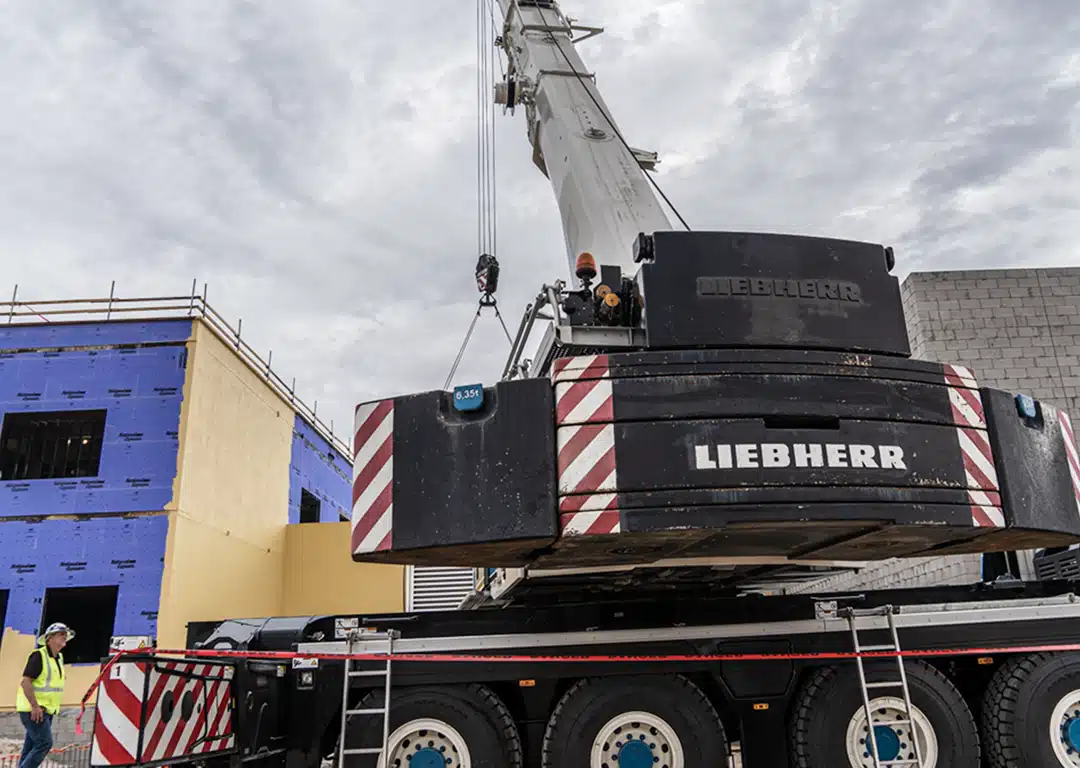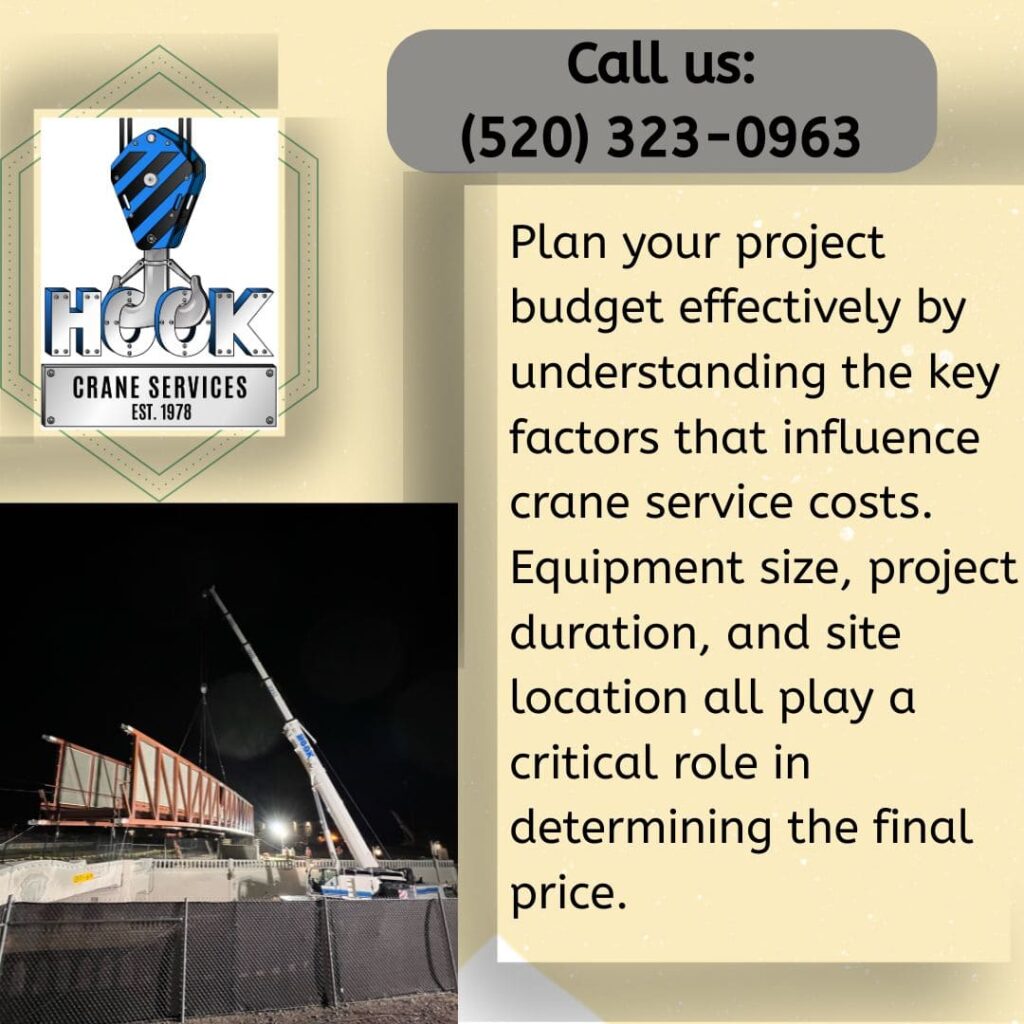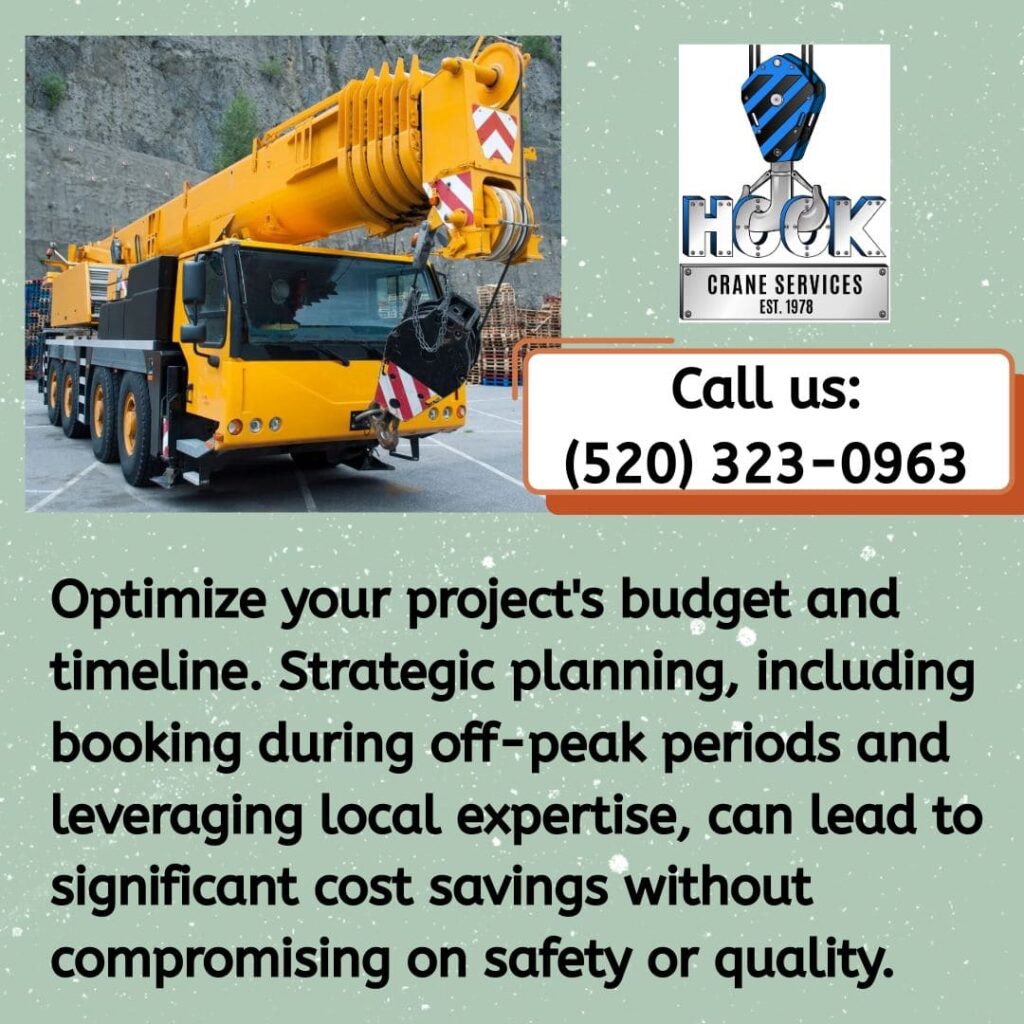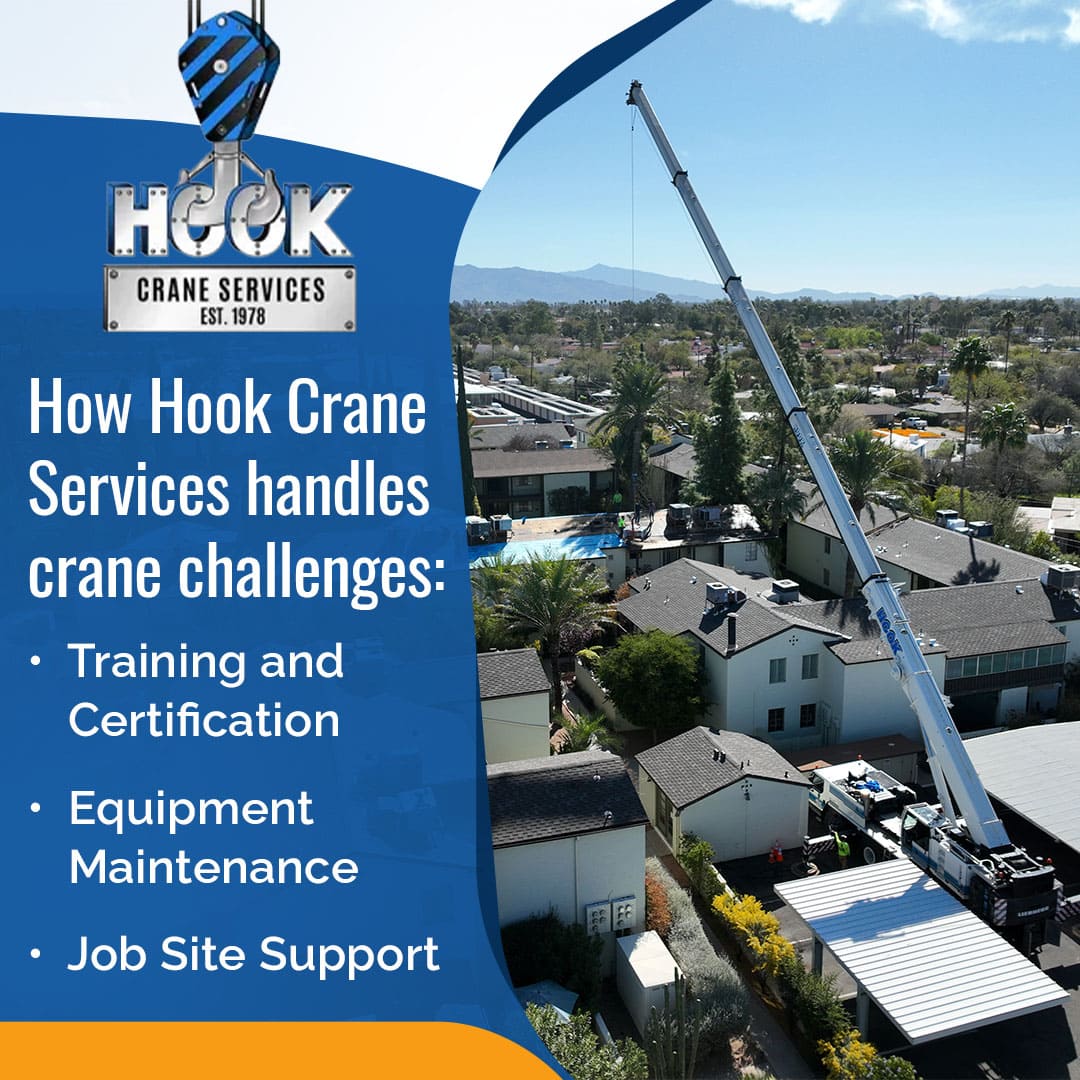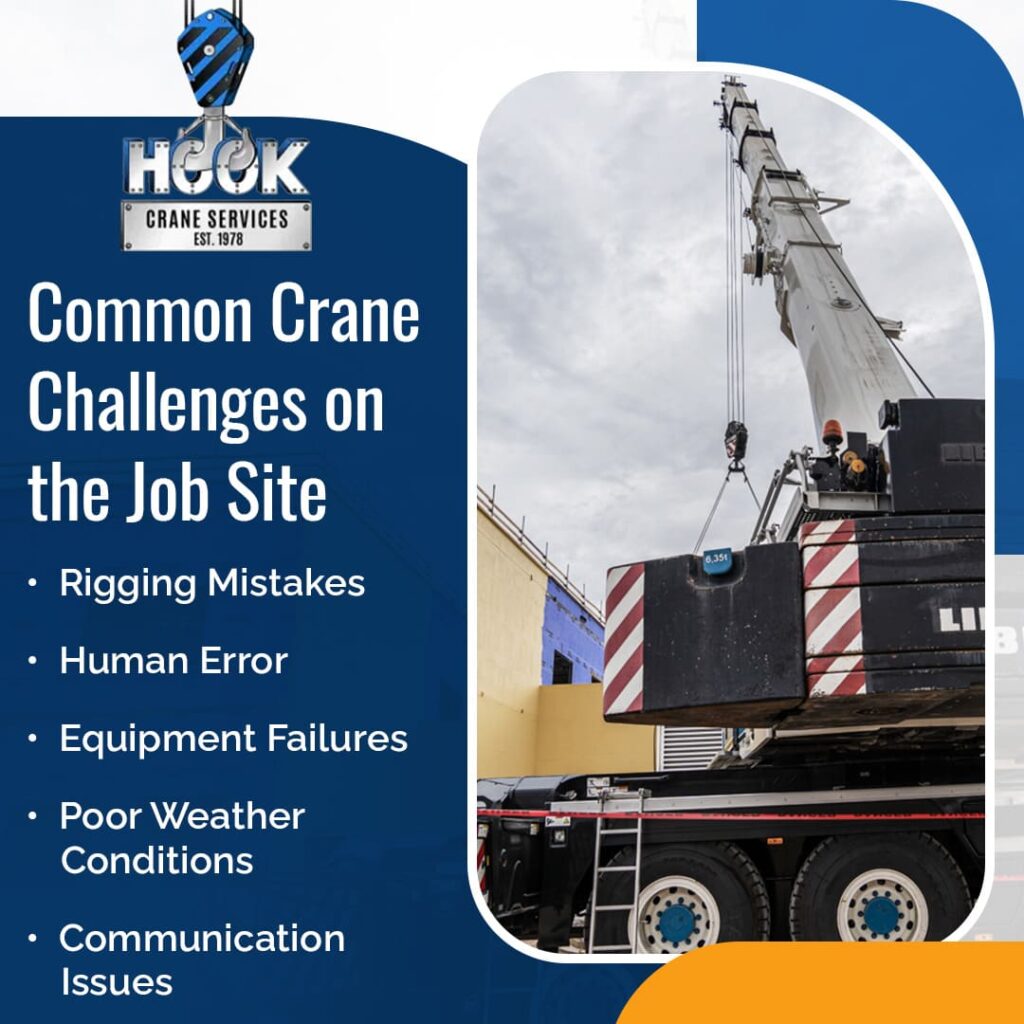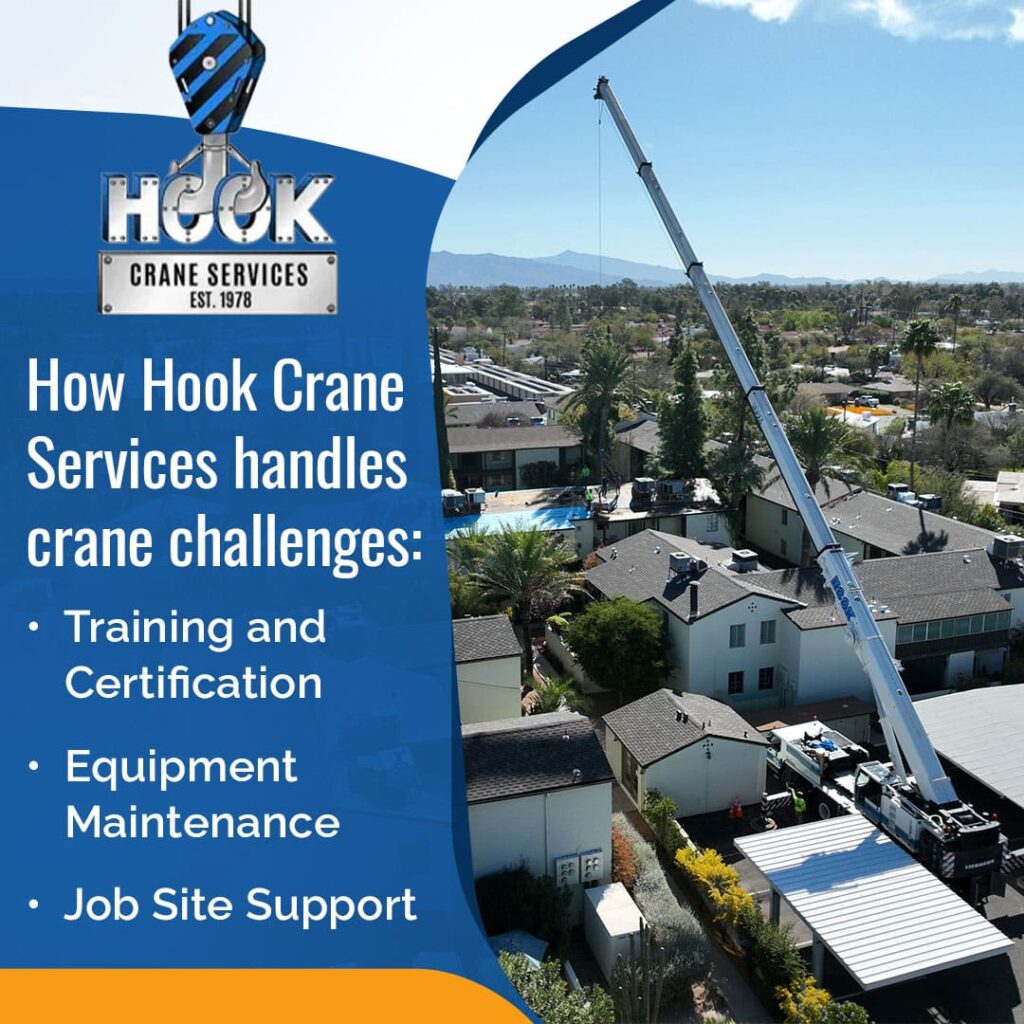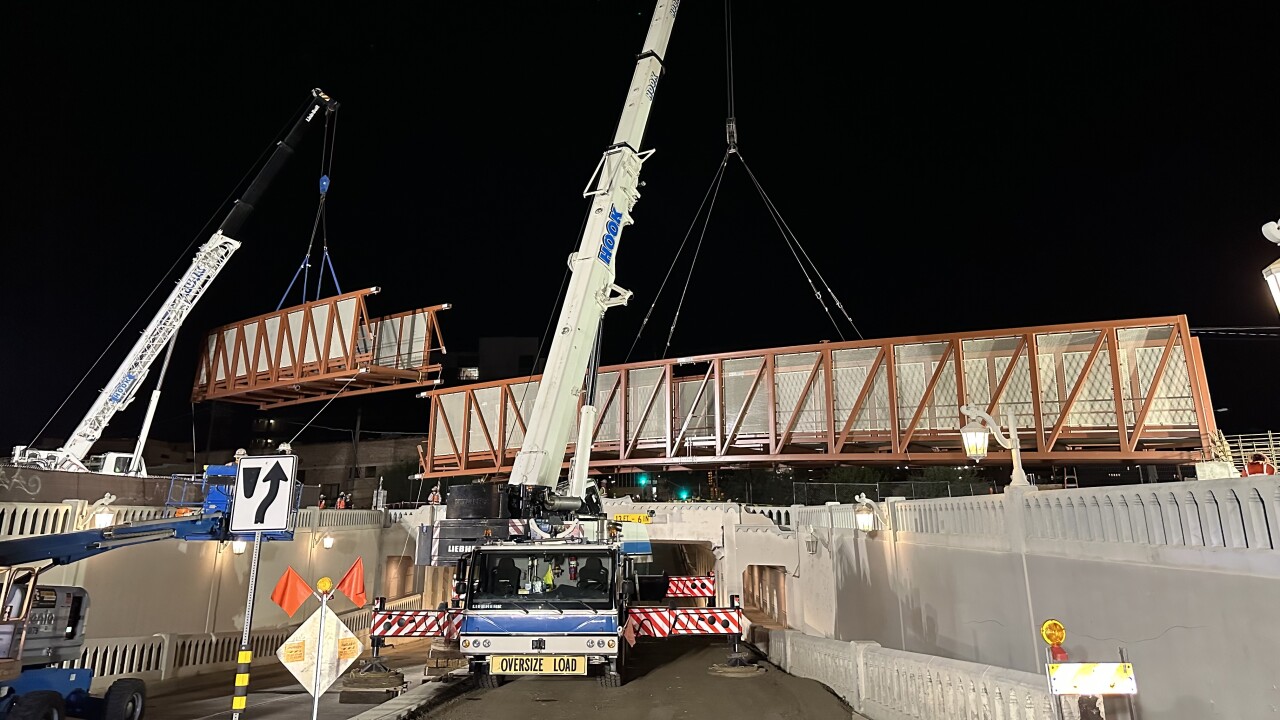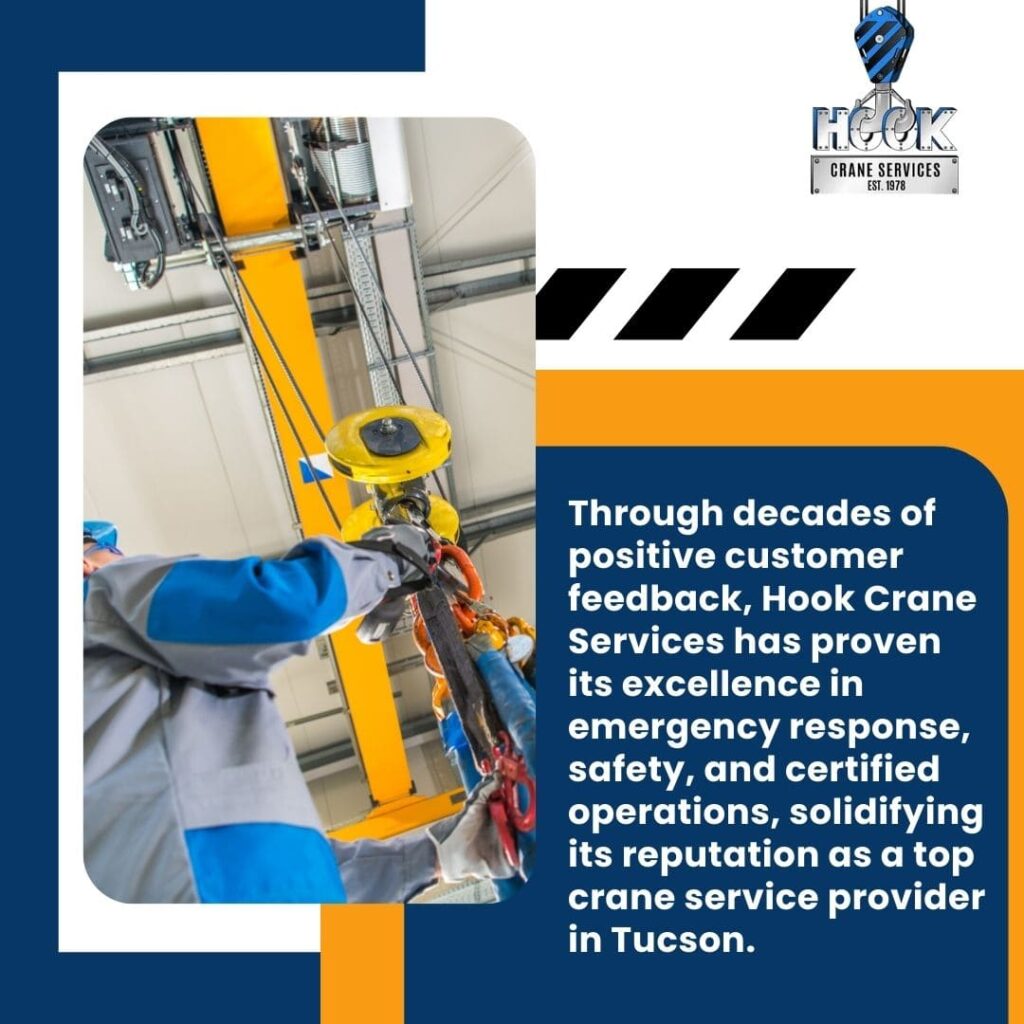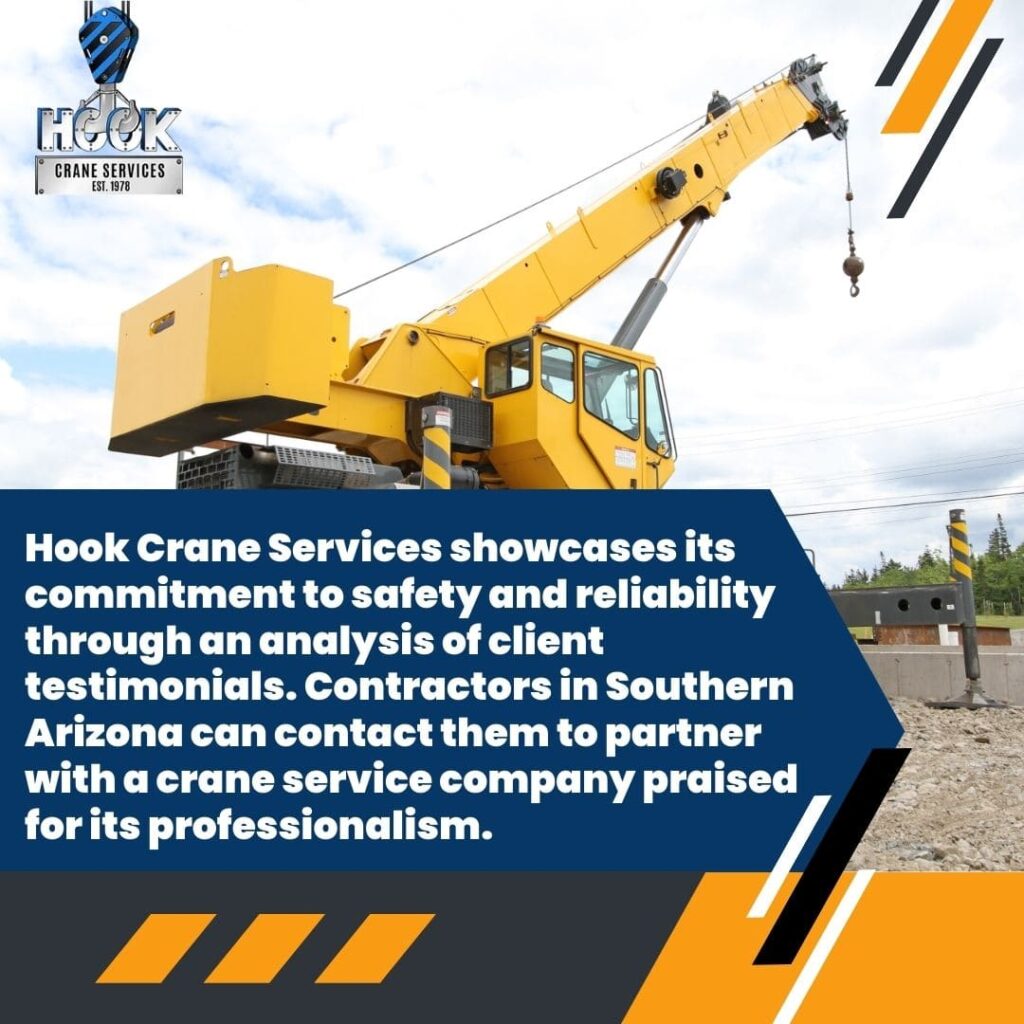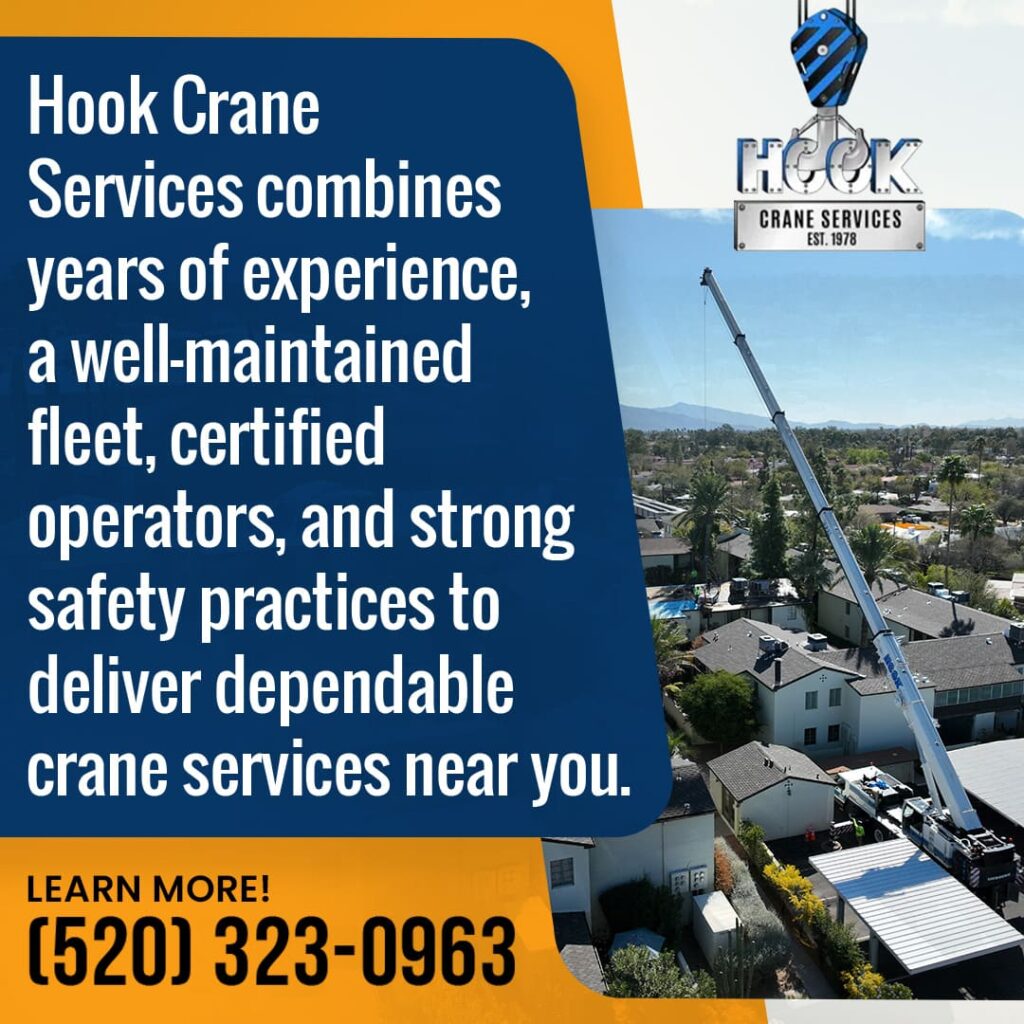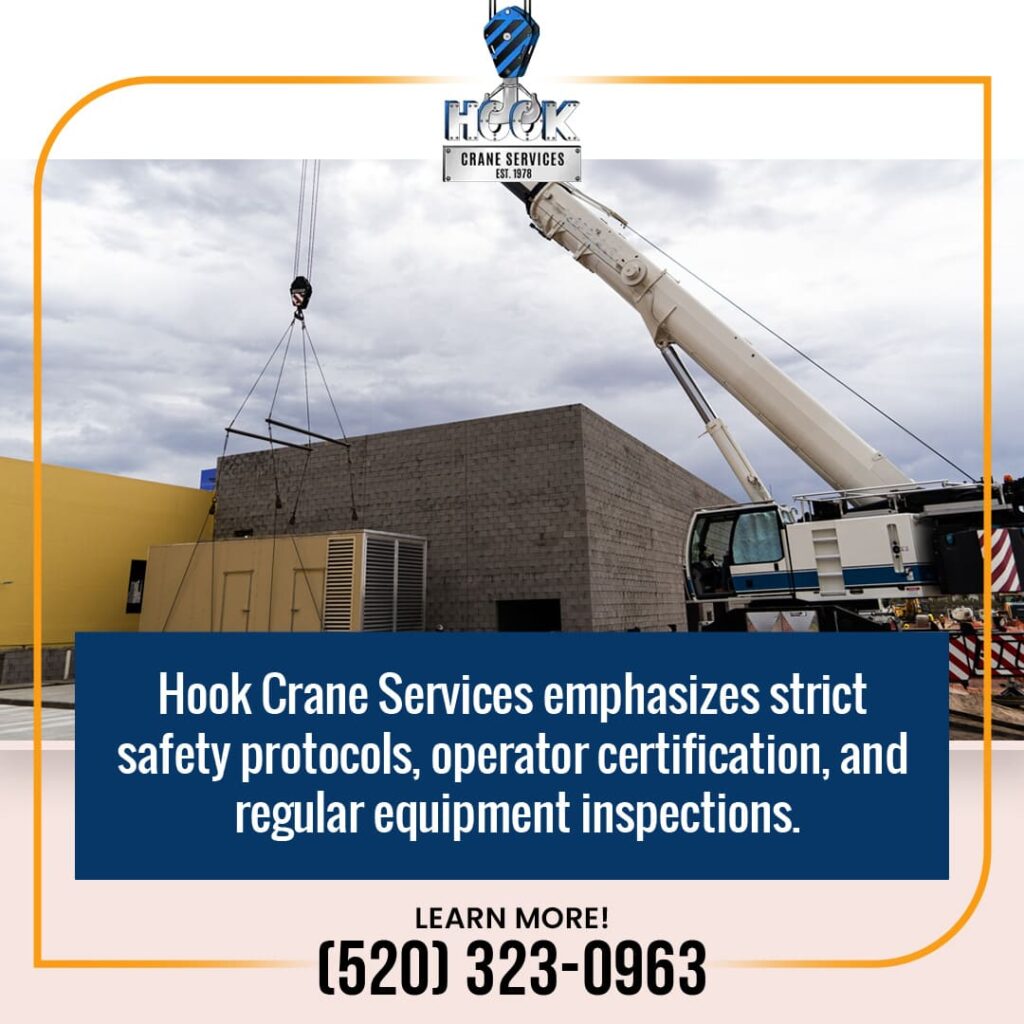Synopsis
In this blog, we analyze customer testimonials to show how our professional crane services demonstrate reliability and quality. Through real client experiences with Hook Crane Services, we explore our emergency response capabilities, safety performance, geographic coverage, and long-term partnerships; factors that set us apart from basic equipment rental companies.
Key Takeaways
- Emergency Response Reliability: Professional crane services prove their value through rapid emergency response, demonstrated by 2.5-hour response times for urgent situations.
- Safety and Certification Standards: Customer testimonials highlighting “100 percent free accidents” and certified operators show how NCCCO and MSHA certifications separate quality providers.
- Consistent Geographic Coverage: Maintaining service quality across multiple Arizona locations demonstrates standardized procedures and regional expertise.
- Professional Project Coordination: Successfully managing complex projects from long distances requires sophisticated communication and project management systems.
- Full Service Value: Client experiences emphasize reasonable costs and professional performance that extends beyond hourly rates to include expertise, insurance, and operational support.
Construction projects demand unwavering reliability and professional service when heavy lifting operations are required. Client testimonials and project feedback provide valuable insights into crane service quality, helping contractors make ideal decisions about their equipment partners. Awareness of how crane services perform under real-world conditions through customer experiences reveals the true measure of operational excellence and service commitment.
Hook Crane Services has accumulated decades of client feedback since beginning operations in Tucson in 1978. These customer experiences demonstrate patterns of service delivery, response times, and professional standards that define reliable crane operations. For contractors evaluating crane service companies throughout Southern Arizona, examining actual client experiences provides concrete evidence of service capabilities and operational reliability.
Evaluating Service Reliability Through Client Experiences
Reliability in crane services extends beyond equipment availability to encompass response times, project coordination, and problem-solving capabilities. Client testimonials consistently highlight the importance of prompt service delivery and professional communication throughout project execution.
Long-Distance Project Coordination
Marko Hansen, managing a complex project from over 2,300 miles away, experienced the coordination challenges that test crane services company capabilities. His testimonial emphasized how Hook Crane Services maintained professional communication while managing the precise timing required for successful project completion. This type of long-distance coordination requires experienced project management and clear communication protocols that many crane service companies struggle to provide consistently.
The ability to coordinate equipment delivery with trucking schedules and project timelines demonstrates the operational sophistication that separates professional crane service companies from basic equipment rental providers. These coordination capabilities become particularly important for contractors managing multiple subcontractors and tight project schedules.
Key coordination elements include:
- Precise timing synchronization with multiple contractors
- Clear communication protocols across long distances
- Equipment scheduling aligned with project milestones
- Professional project management throughout execution
Emergency Response Capabilities
Emergencies reveal the true reliability of crane service providers. Jean Dirks faced an urgent equipment removal challenge when a large commercial oven became stuck on an elephant stand. At Hook Crane Services, we demonstrate our emergency response capabilities by arriving within 2.5 hours of the initial call, providing both immediate problem assessment and appropriate equipment selection.
Response Time Standards
This rapid response time reflects the operational infrastructure required for professional crane services. Maintaining 24-hour availability requires staffing protocols, equipment readiness, and dispatch systems that enable quick mobilization. Many crane service company operations claim emergency availability but lack the systematic approach necessary for a consistent rapid response.
Emergency response capabilities include:
- 24-hour dispatch availability
- Equipment readiness for immediate deployment
- Trained operators available for urgent calls
- Rapid problem assessment and solution development
The reasonable cost structure mentioned in this emergency response case also demonstrates how established crane services can provide competitive pricing even for urgent situations. This balance between rapid response and fair pricing reflects operational efficiency and established business practices.
Professional Standards and Safety Performance
Safety records and professional certifications represent fundamental criteria for evaluating crane service companies. Carlos Poom’s testimonial specifically highlighted the 100% accident-free record and certified operators that characterize professional crane operations.
Operator Certification Requirements
National Commission for the Certification of Crane Operators (NCCCO) certification represents an industry-standard qualification for crane operators. We maintain these certifications across our operational staff, demonstrating a commitment to professional standards that many crane services overlook or treat as optional requirements.
Specialized Industry Certifications
Mine Safety and Health Administration (MSHA) compliance adds another layer of professional qualification, particularly important for industrial applications and specialized lifting operations. These certifications require ongoing training investments and operational discipline that separate professional crane service company operations from less qualified providers.
Professional certification elements include:
- NCCCO operator certifications maintained across all staff
- MSHA compliance for industrial and mining applications
- Ongoing training programs and safety updates
- Regular certification renewals and skill assessments
Equipment Maintenance and Reliability
Professional crane services maintain equipment fleets through systematic maintenance programs that prevent breakdowns during critical project phases. Customer testimonials consistently reference reliable equipment performance, suggesting thorough maintenance protocols that support operational dependability.
Fleet Development and Investment
The progression from Hook Crane Services’ original single 10-ton National boom truck to the current fleet of 11 modern cranes demonstrates sustained investment in equipment quality and operational capability. This fleet expansion reflects client demand for reliable service and the company’s commitment to meeting diverse project requirements throughout Southern Arizona.
Modern equipment advantages include:
- Regular maintenance schedules preventing operational failures
- Updated technology for improved safety and efficiency
- Diverse equipment options matching specific project needs
- Backup equipment availability for continuous operations
Modern crane services require diverse equipment capabilities to serve varied client needs. The range from 17-ton boom trucks to 165-ton heavy-lift cranes enables appropriate equipment selection for specific project requirements, avoiding the operational compromises that result from limited equipment options.
Geographic Coverage and Service Consistency
Consistent service delivery across multiple locations tests the operational systems and professional standards of crane service companies. Southern Arizona, encompassing the Catalina Foothills, Green Valley, Marana, Oro Valley, Safford, Vail, and Willcox, is where Hook Crane Services continues to operate.
Regional Expertise Development
Geographic coverage requires local knowledge of transportation routes, permit requirements, and site-specific challenges that affect crane operations. Professional crane services develop this regional expertise through sustained operations and local relationship building that supports efficient project execution.
Service Standardization Across Locations
Consistent service quality across multiple locations reflects standardized operational procedures. Training programs help maintain professional standards, no matter the project location. This operational consistency becomes particularly important for contractors managing projects across wide geographic areas.
Regional service elements include:
- Local knowledge of transportation routes and restrictions
- Knowledge of regional permit requirements
- Established relationships with local contractors and suppliers
Consistent service standards across all coverage areas
Project Diversity and Specialized Applications
Customer experiences demonstrate the breadth of applications that professional crane services handle successfully. From residential truss installation to industrial transformer placement, diverse project requirements test equipment capabilities and operator expertise.
Residential Service Capabilities
Chandler G.’s experience with emergency carport collapse removal illustrates how professional crane services adapt to unexpected residential needs. The quick response, appropriate equipment recommendation, and reasonable $130 cost demonstrate the flexibility and customer service orientation that characterize established crane service company operations.
Industrial Application Expertise
Industrial applications require specialized knowledge and equipment capabilities that extend beyond basic lifting operations. Hook Crane Services’ experience with well site equipment changes and power plant installations demonstrates the technical expertise required for complex industrial crane services.
Project diversity includes:
- Residential construction and emergency services
- Commercial building and infrastructure projects
- Industrial equipment installation and maintenance
- Specialized applications requiring technical expertise
Cost Structure and Value Assessment
Professional crane services strike a balance between competitive pricing, complete service offerings, and dependable operations. Customer testimonials consistently reference reasonable costs while emphasizing service quality and professional performance.
Value Beyond Hourly Rates
The value proposition for professional crane services extends beyond hourly equipment rates to include operator expertise, equipment reliability, insurance coverage, and operational support. These full-service elements justify premium pricing compared to basic equipment rental arrangements.
Emergency Service Pricing
Emergency services typically command premium pricing due to rapid response requirements and operational disruption. The reasonable emergency service costs mentioned in customer testimonials suggest established pricing structures that balance service accessibility with operational sustainability.
Value components include:
- Professional operator expertise and certification
- Comprehensive insurance coverage and liability protection
- Equipment reliability and maintenance standards
- 24-hour availability and emergency response capabilities
Long-term Partnership Development
Professional crane service companies focus on building lasting client relationships rather than transactional equipment rental arrangements. Hook Crane Services’ stated goal of establishing lasting relationships through exceptional performance reflects this partnership approach to client service.
Partnership Benefits
Long-term partnerships enable crane services to understand client operational patterns, project requirements, and service preferences that support more efficient service delivery. These relationships also provide clients with preferred access to equipment and scheduling priority during peak demand periods.
Partnership advantages include:
- Insight into client operational patterns and preferences
- Priority scheduling during high-demand periods
- Customized service solutions for recurring project types
- Streamlined communication and project coordination
Technology Integration and Modern Service Delivery
Modern crane services integrate technology solutions that improve operational efficiency and client communication. While maintaining focus on fundamental service reliability, professional providers adopt technological improvements that support better project coordination and service delivery.
Equipment Technology Advancement
Equipment telematics, load monitoring systems, and communication technologies enable more precise project management and safety oversight. These technological capabilities become particularly important for complex projects requiring detailed coordination and documentation.
Operational Technology Benefits
Professional crane service company operations maintain current equipment technologies while preserving the fundamental service elements that customers value most: reliability, professional competence, and responsive communication.
Technology integration includes:
- Load monitoring and safety systems
- Equipment telematics for performance tracking
- Communication systems for improved coordination
- Documentation systems for project management
Service Differentiation in Competitive Markets
The crane services industry includes numerous providers with varying levels of professional capability and service commitment. Customer testimonials underscore the gap between simple equipment rentals and the advantages of expert, full-service crane solutions.
Operational Excellence Standards
Professional crane services demonstrate their value through consistent performance across diverse project types, geographic locations, and client requirements. This operational consistency requires systematic business practices, qualified personnel, and sustained investment in equipment and training.
Business Sustainability Indicators
The more than 45 years that Hook Crane Services has been in Tucson show how professional service delivery and customer satisfaction lead to long-term economic viability. This operational longevity reflects successful adaptation to changing market conditions while maintaining core service quality.
Differentiation factors include:
- Consistent performance across diverse project requirements
- Professional certifications and safety standards
- Complete service provision that goes beyond simple equipment leasing
- Long-term business sustainability and market presence
Choosing Professional Crane Services Company Partners
Customer experiences validate the importance of selecting a crane services company based on detailed evaluation criteria, including safety records, professional certifications, equipment capabilities, and service reliability. The testimonials and project feedback demonstrate how professional crane services deliver value through operational excellence and client-focused service delivery.
For contractors throughout Southern Arizona seeking dependable crane services, examining actual customer experiences provides the most reliable assessment of service capabilities and professional standards. The consistent themes of reliability, professionalism, and responsive service that characterize customer feedback represent the fundamental qualities that define superior crane services company performance in today’s competitive construction environment.
Contact Hook Crane Services at (520) 323-0963 or hookcrane@hookcrane.com to experience the reliability and professionalism that customers consistently recognize in the testimonials and project feedback.
